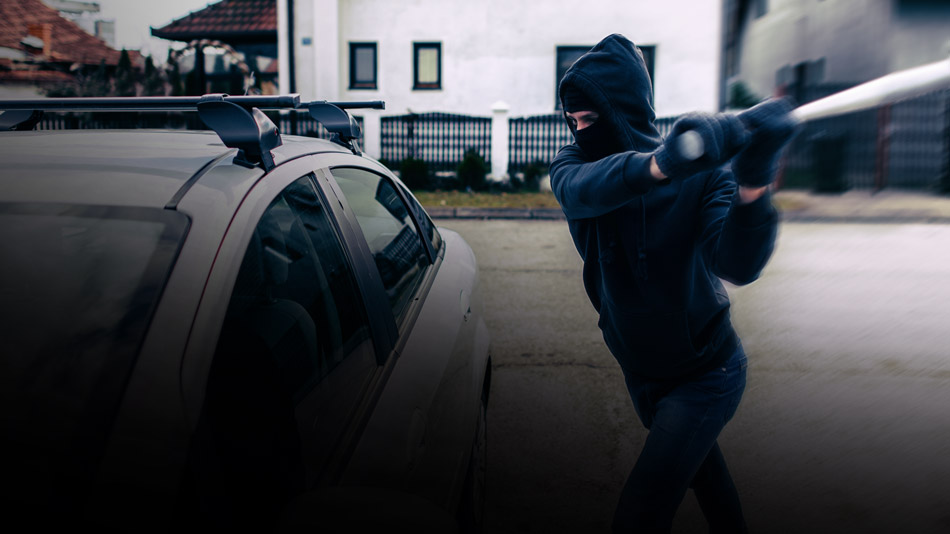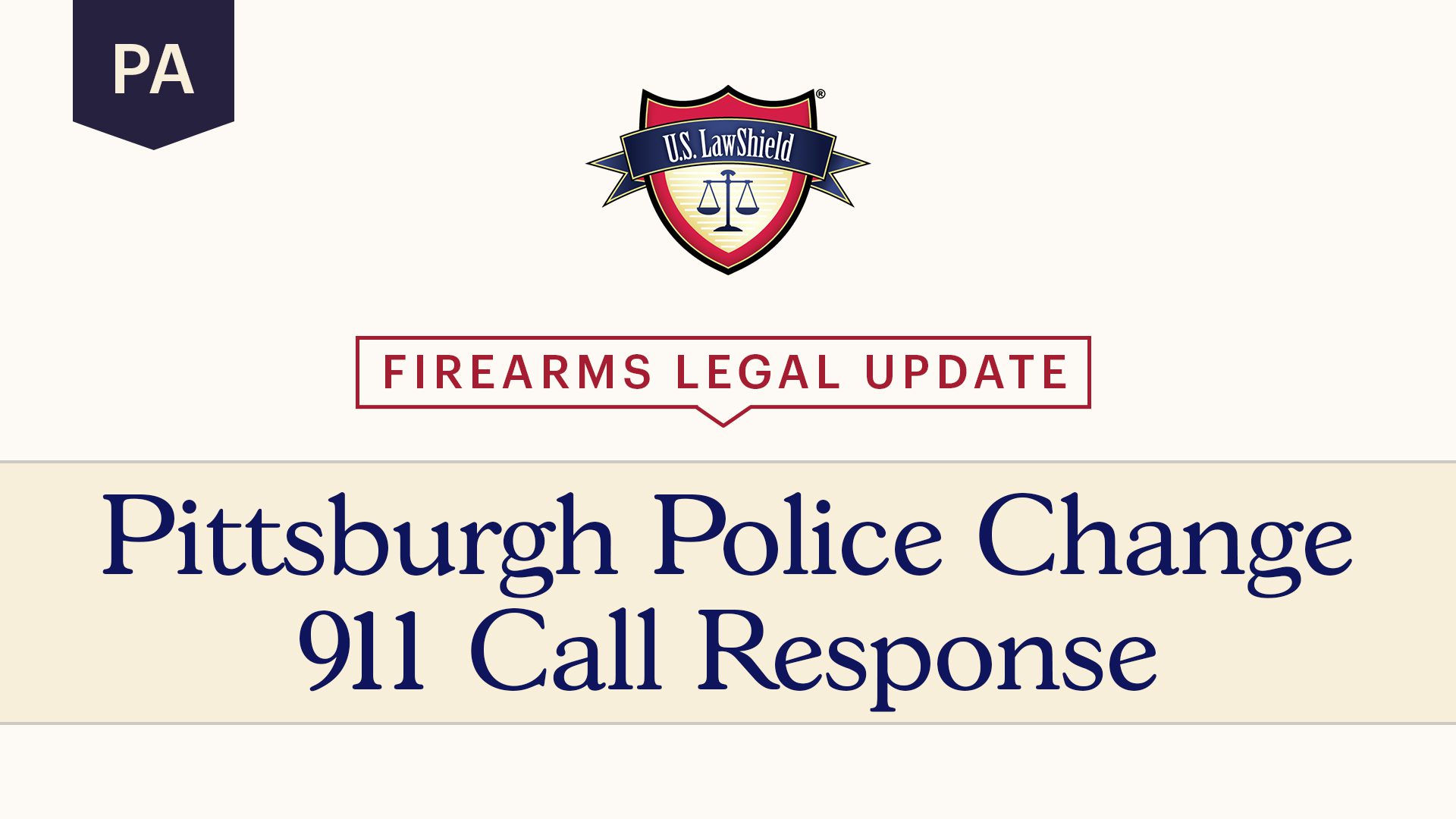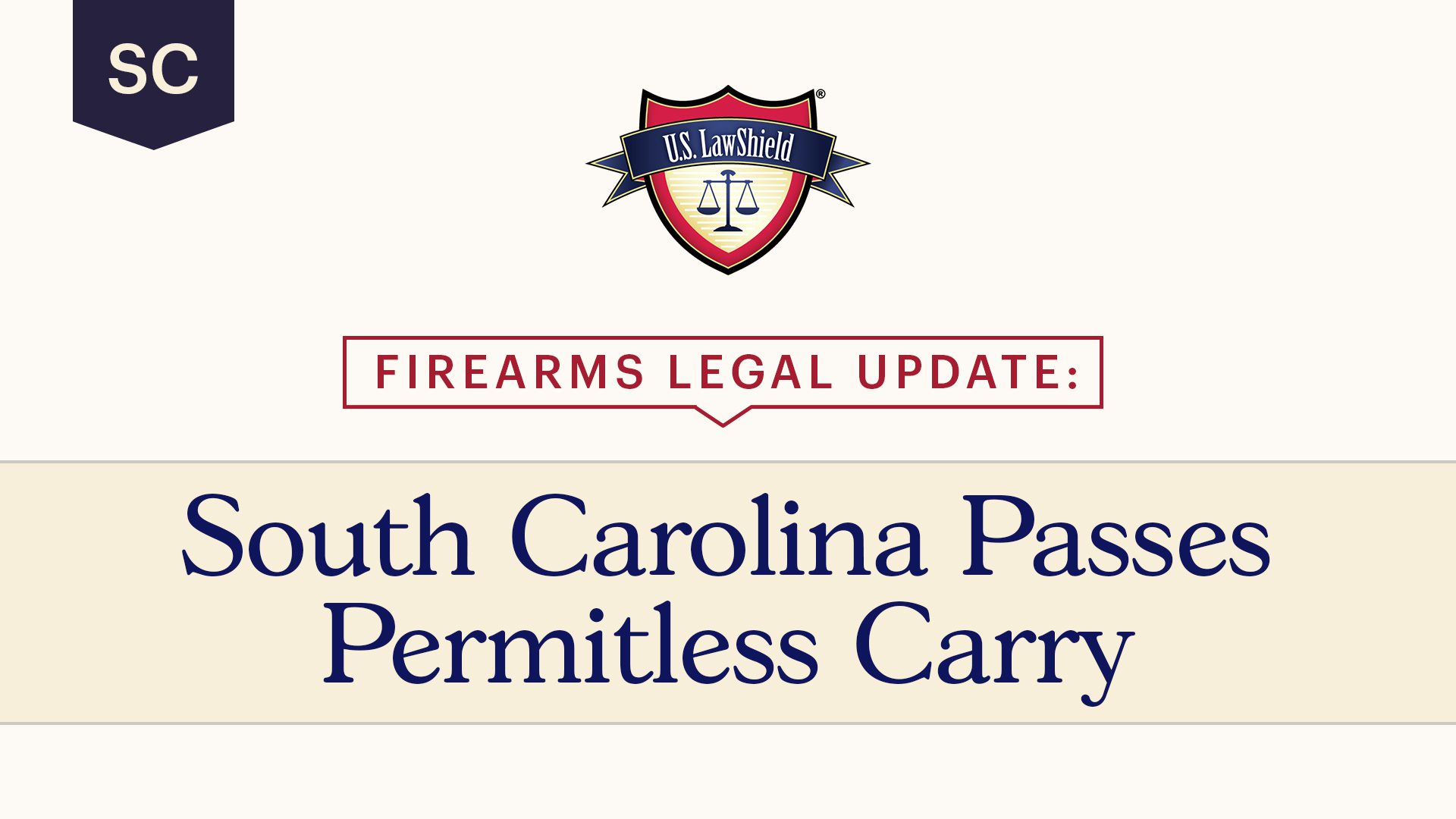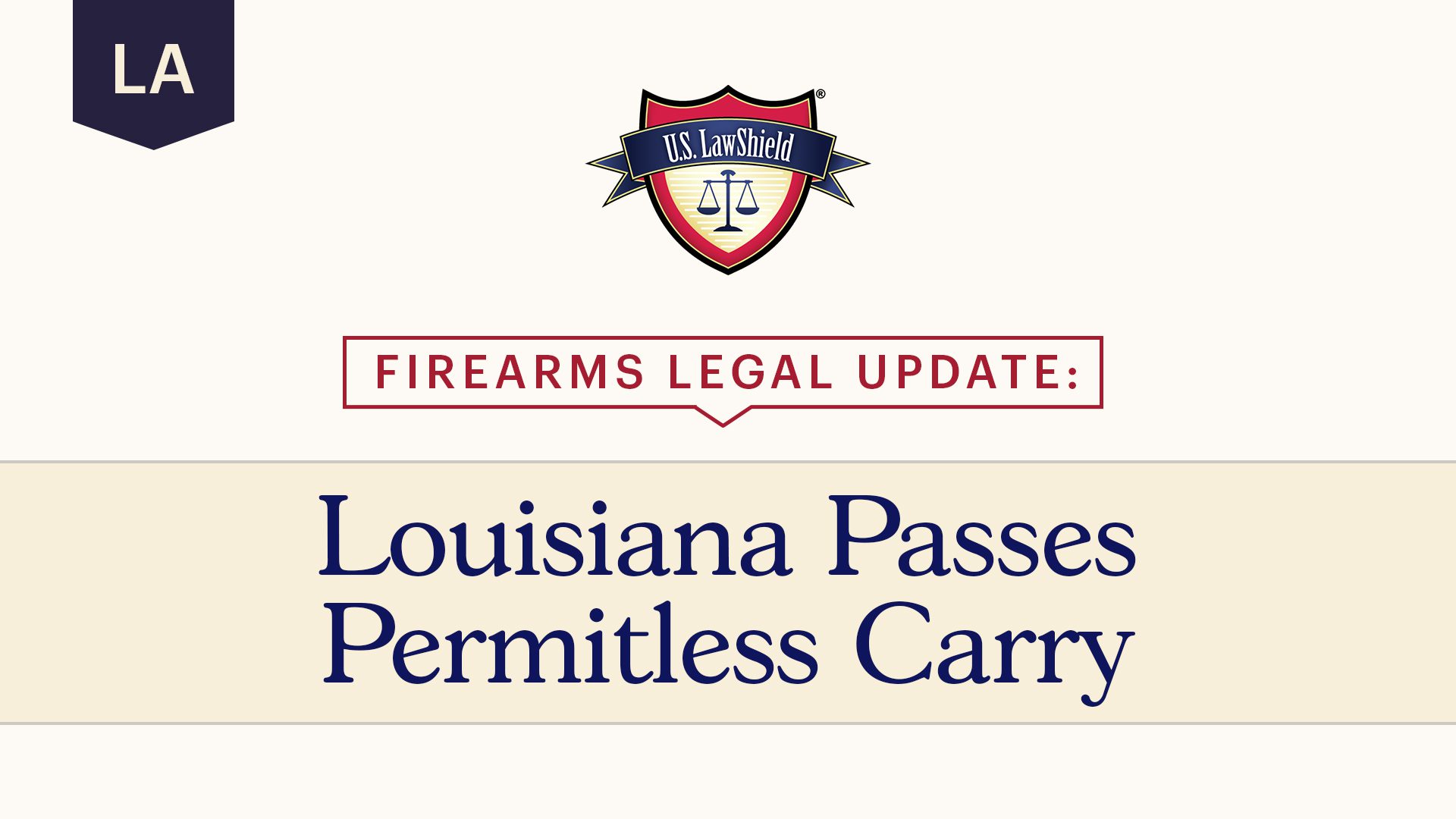
Imagine – you’re getting ready to walk out of the grocery store and head towards your car in the parking lot. To your surprise, when you exit the store, you see that a violent mob has descended on the parking lot and is vandalizing vehicles. What can you do? What should you do? What if this happens in your driveway at home, rather than a public place? What rights do you have to defend your vehicle and property? These are more complicated questions than you might think.
Life Over Property
The starting point is this: in most states, the law favors lives over things. So, if you catch a person breaking into an unoccupied vehicle, you may have a tough time justifying deadly force to protect the property. Property damage alone, such as spray-painting your vehicle, is rarely a justification for deadly force.
Verbal Provocation
A good general rule when out in public is that verbal provocation is not enough to justify the use of force or deadly force. When confronted with a protester for example, verbal threats without any indication that the person will act on those threats do not justify the use of force in most states. However, let’s say someone is threatening you in addition to some other act (e.g., vandalizing your vehicle, trespassing on your property), you may be allowed to use force (but probably not deadly force) to stop the interference.
Occupied Vehicle
The situation usually changes when the vehicle is occupied. In the case of an attack on an occupied vehicle, you are no longer protecting merely your vehicle; you are now also protecting a human life. Many states, but not all, extend the added protections of the Castle Doctrine to occupied vehicles. But, you must make sure you know the law in your state—Illinois, for example, only extends Castle Doctrine protections to the occupied dwelling, not the occupied vehicle. 720 ILCS 5/7-2.
However, if your state does extend the Castle Doctrine to your occupied vehicle, and an assailant is unlawfully attempting to enter your vehicle (your “castle”) with force, you may be justified in using deadly force depending on the laws in your state.
What Crime Could I Be Charged With?
Most states have laws against “displaying” a weapon—especially a firearm—in a threatening or alarming manner. For example, Ohio law states it is a crime to display, brandish, or indicate someone possesses a firearm. Ohio Rev. Code § 2941.145. Although different states may use a different word, such as “exhibit” or “produce,” most states ultimately criminalize the same behavior: the intentional display of a firearm in a threatening manner. Often, there is an exception to these “brandishing” crimes if the weapon was displayed in defense of a person. For that reason, it is not advisable to intentionally display a firearm unless you reasonably fear that a life is in danger.
Display Versus Pointing
Many states also draw an important distinction between displaying a firearm and pointing or discharging one. In Florida, it is a misdemeanor crime to exhibit a weapon in a rude, careless, angry, or threatening manner, and not in necessary self-defense. Fla. Stat. § 790.10. Another example, in Texas, the production of a weapon (i.e., displaying or showing a weapon), as long as the actor’s purpose is limited to creating an apprehension that he or she will use deadly force if necessary, constitutes a use of force (not deadly force). Tex. Penal Code § 9.04. Courts, district attorneys, and police officers can all have different interpretations of this statute. However, it generally means you can display a gun as a warning in self-defense and the action will not be considered deadly force.
Similarly, Kansas specifically excludes threats of force from the definition of deadly force when the “actor’s purpose is limited to creating an apprehension that the actor will, if necessary, use deadly force in defense” of themself or another. Kan. Stat. Ann. § 21-5221. This is a great legal protection because, as discussed above, deadly force is often not justified to defend against a property crime. In Kansas, a threat of force may be appropriate when dealing with damage to your vehicle by a vandal or looter.
As another example, in California, drawing or exhibiting a deadly weapon not in self-defense, under certain circumstances is a crime. Cal. Penal Code § 417. So what does that mean? Whether loaded or unloaded, if a firearm is taken out of its holster or intentionally shown in a rude, angry, or threatening manner—other than in self-defense—you could be arrested. Same goes in Illinois—if a person uses a firearm while putting another in fear of a battery, whether the firearm is “pointed” or simply exhibited, the offense is classified as an aggravated assault. 720 ILCS 5/12-1 & 5/12-2.
You must take the time to learn the laws of self-defense in your state. It can be a complicated process, but every responsible gun owner needs to have a reliable source of information. Sort fact from fiction and stay on the right side of the law.
If you have any question, please contact U.S. LawShield and ask to speak to your Independent Program Attorney.
The preceding should not be construed as legal advice nor the creation of an attorney-client relationship. This is not an endorsement or solicitation for any service. Your situation may be different, so please contact your attorney regarding your specific circumstances. Because the laws, judges, juries, and prosecutors vary from location to location, similar or even identical facts and circumstances to those described in this presentation may result in significantly different legal outcomes. This presentation is by no means a guarantee or promise of any particular legal outcome, positive, negative, or otherwise.





Do you have a guide, that might be available to the membership, that can ” show at a glance” various states vagaries?
Thanks
You may want to try the CCW – Concealed Carry 50 State app. I’ve found it helpful on my iPhone.
So in Texas deadly force is authorized if some rioters are trying to attack your vehicle? This falls under the castle law?
this is the same question i want to know. can i use my hand gun if a burglar is breaking into my vehicle? (I know i can use it if the burglar is breaking into my home, but im not sure about the car)
Only if you are in your vehicle
Okay, great article … but, too general. It is totally a cliffhanger for someone living in a specific state not mentioned, such as North Carolina. The article would have been fantastic if it answered the questions specifically using NC laws, as I clicked on the article from our LawShield NC website expecting it to address NC-specific answers. As it stands, the article generates more questions than provides answers. Can you clarify whether the occupants of a vehicle being smashed with clubs by rioters are able to use deadly force?
What is someone tries to enter your house through garage. What can you do?
If your garage is attached to your home, I would think you could use deadly force, if warranted by your state.
Refer back to the part of attempting to enter the vehicle. There is a difference between harassment and attempting to enter to inflict bodily harm.
Deadly force only against deadly force of attacker.
Texas extends the Castle Doctrine to a vehicle only if the vehicle is occupied and there is a clear threat to your life. Our instructor when I took the LTC class said that you can show the gun if they are trying to get in (as the article mentions) to show you will use deadly force if necessary (I wouldn’t point it at them at that point), but don’t discharge the weapon until that window breaks.
How do I know if my membership is current
If someone beating my dog can I use deadly force
Is it appropriate to display a weapon under title 2 chapter 9 .02/.04 when being attacked in a road rage incident? Attacked being your life in jeopardy due to attempts to hit your car bit due to your driving skill they did not manage to hit you?
I agree with the above questions. The article is too vague, and not state specific. A good booklet to the specific state would be greatly appreciated. From what I understand, here in Ky we have a stand your ground / castle doctrine, however some clarification would be helpful in the above scenarios.
What guide can I get specific only to the state of Florida for use of force at my home, and vehicle occupied and not occupied?
I would love to see some answers to the questions that have already been posted.
I think a good example of the “Castle Doctrine” in Texas was what happened in Austin two weeks ago where a rioter pointed an AK47 at a motorist and was killed by that motorist. The motorist was questioned by the police and released. This incident was captured on video.
In Texas does it make any difference if the vandalism happens in the middle of the night.
So what if I have an item in my vehicle that I might need for my medical condition (IE: Portable Oxygen Concentrator and/or Oxygen tank)? Can I use Lethal Force or Lethal Threat to try and retrieve that item? What if I have a rifle in the trunk and the “protestors” are trying to gain access to said trunk?
If you’re going to write an article like this and refer to what States offer certain protections, why not give us a link to these so we can have easy access? Seriously
Similar to Mike’s question above…what about the life of property such as a pet or livestock on a farm being endangered by an attacker?
Please publish a guide that shows which states the castle law extends to an occupied vehicle. I live in Virginia and I have heard some local horror stories near to where I live.
I am confused about what classifies as “displaying” a weapon. Some of these terrorist ANTIFA & BLM people are openly carrying long guns. They are not being arrested or charged with brandishing. If a weapon is concealed under a shirt and the gun owner pulls back the shirt, revealing a holstered pistol as a means of diffusing a situation from escalating to violence, is that a crime in Georgia? If so, why is open carry not a crime? Furthermore, if there is a chance of violence that one would like to discourage, how best does one communicate to belligerent aggressors that lethal force is “on the table” if they do not de-escalate? If merely communicating that one is armed is not legal, does one simply have to allow a situation to cross the threshold of “imminent bodily harm or death” to be able to react in self defense?
A specific guide would be useful. This is not. I’d like to know about my ultra-liberal state of Washington.
To mamy good questions that require answers here. I personally I live in Alabama nothing is ever discussed regarding this state laws.
I am a member, So if in Florida, home state, Or in Georgia that I travel to often. In my vehicle and a crowd of rioters start hitting my vehicle, and attempting to smash the windows. What then?
What if the windows are indeed smashed? leaving no physical barrier between myself or family from the rioters?
If the rioters used a stick, club or bat to smash my windows, is that considered a potential deadly weapon that I would fear for my life or my families life?
I’m seeing a lot more questions than answers. How can this be resolved? I, personally, would like to see the answers, as I have some of the same questions, and, I am sure, other members do too.
Deadly force against deadly force. There have been many times recently where people have been dragged out of the vehicle and beaten to a pulp in these riots. My question is. If there a multiple people beating on you car and attempting to prevent you form moving. How do you judge their intentions. You can’t expect someone to roll down their window and ask them what they want to do.
what about NO JERSEY???? Murphy sucks by the way!!!
My name is Russ: I live in Oregon and want to get access to the laws covering guns and all the statutes for my state. How do I go about doing this?
All I can say is that, if someone is trying to destroy any of my property, I don’t care what the law says, I will shoot that SOB! I paid a lot of money for my cars, and if some a**hole is trying to destroy them because they have some leftist agenda, well, they will get shot. Sure, I’ll probably go to prison, but I don’t care. When the criminals have all of the rights, and we law abiding citizens can’t protect ourselves or our property, then this country is doomed. Why have a gun if you can’t use it to protect you or your property? I’m not advocating killing someone to protect my property, what I am saying is that, attack me or my property, and I will use whatever force is necessary to protect my property. What am I supposed to do, stand by and watch my cars or my house be attacked and destroyed? No thanks, I will defend my property!